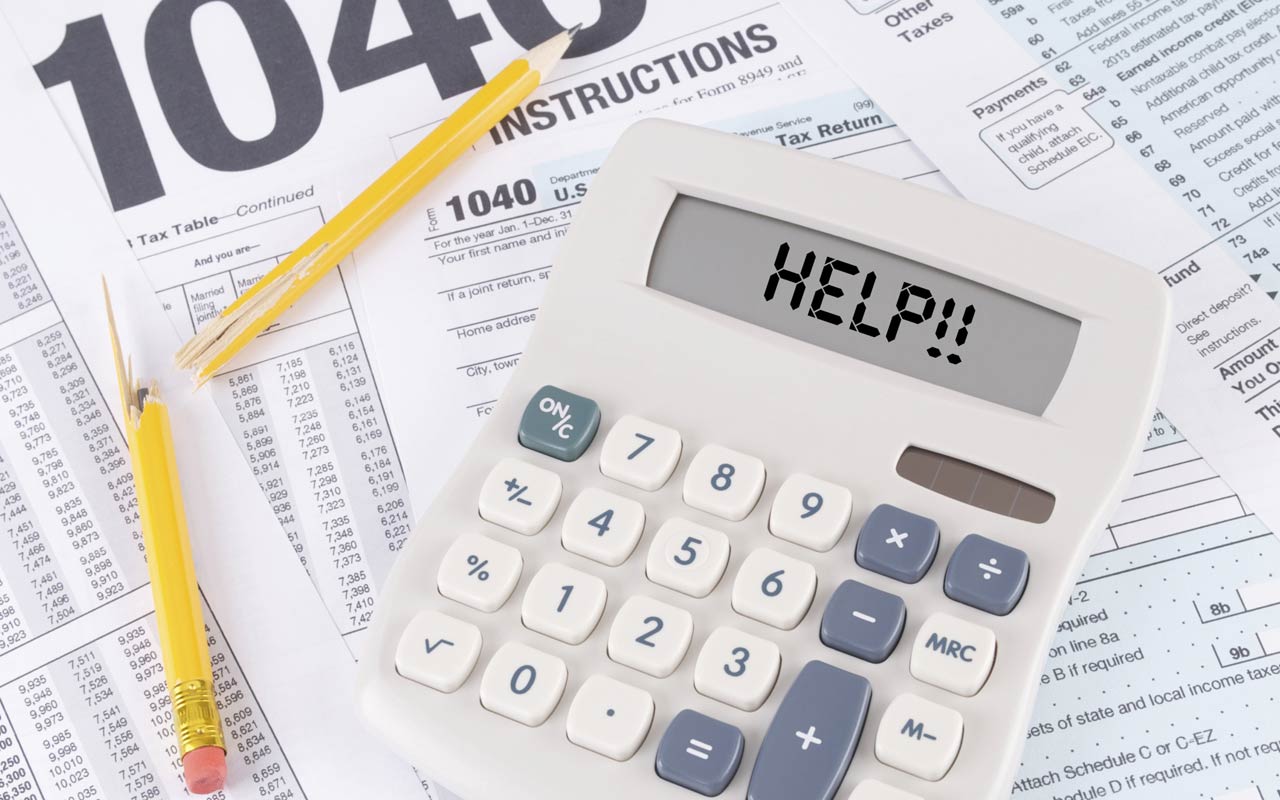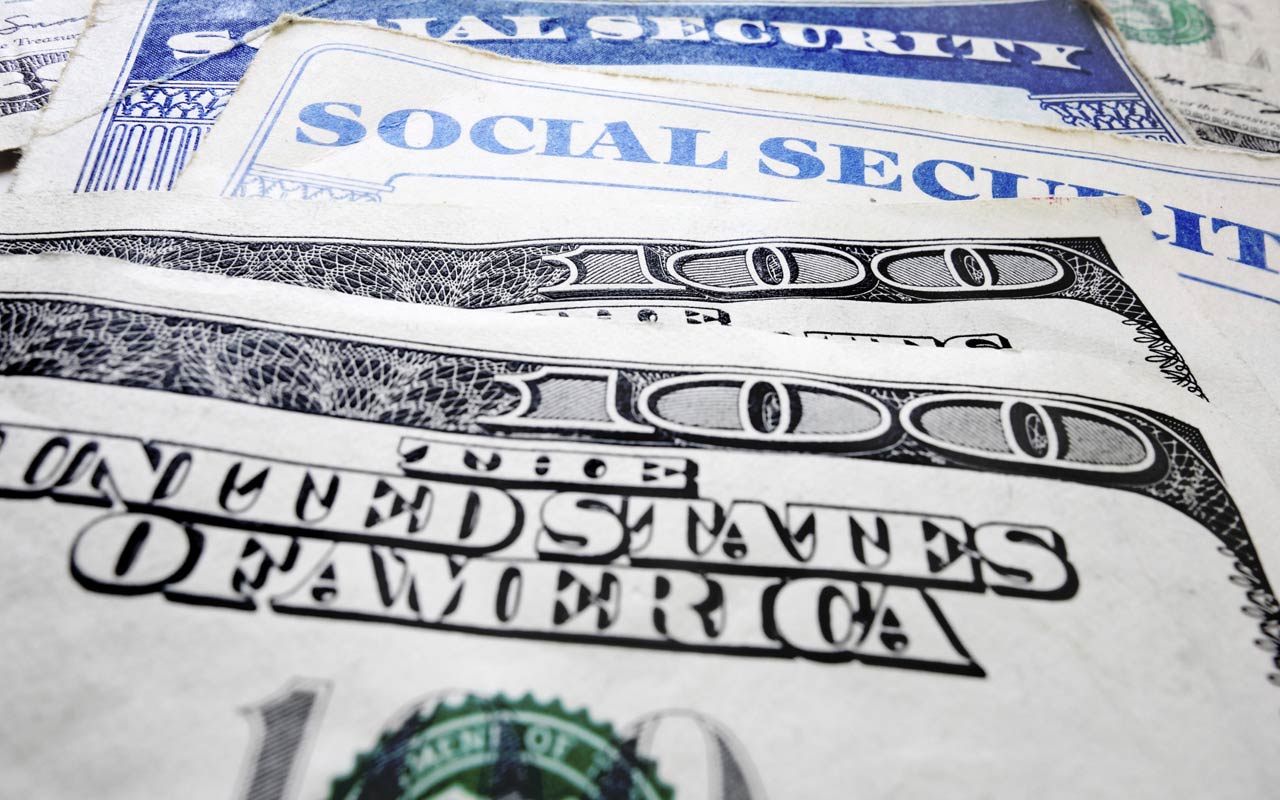8 Urban Myths of Personal Finance
They have the slight ring of truth, with just enough “truth” to make their unexpected twists or alarming implications seem real.


Profit and prosper with the best of Kiplinger's advice on investing, taxes, retirement, personal finance and much more. Delivered daily. Enter your email in the box and click Sign Me Up.
You are now subscribed
Your newsletter sign-up was successful
Want to add more newsletters?

Delivered daily
Kiplinger Today
Profit and prosper with the best of Kiplinger's advice on investing, taxes, retirement, personal finance and much more delivered daily. Smart money moves start here.

Sent five days a week
Kiplinger A Step Ahead
Get practical help to make better financial decisions in your everyday life, from spending to savings on top deals.

Delivered daily
Kiplinger Closing Bell
Get today's biggest financial and investing headlines delivered to your inbox every day the U.S. stock market is open.

Sent twice a week
Kiplinger Adviser Intel
Financial pros across the country share best practices and fresh tactics to preserve and grow your wealth.

Delivered weekly
Kiplinger Tax Tips
Trim your federal and state tax bills with practical tax-planning and tax-cutting strategies.

Sent twice a week
Kiplinger Retirement Tips
Your twice-a-week guide to planning and enjoying a financially secure and richly rewarding retirement

Sent bimonthly.
Kiplinger Adviser Angle
Insights for advisers, wealth managers and other financial professionals.

Sent twice a week
Kiplinger Investing Weekly
Your twice-a-week roundup of promising stocks, funds, companies and industries you should consider, ones you should avoid, and why.

Sent weekly for six weeks
Kiplinger Invest for Retirement
Your step-by-step six-part series on how to invest for retirement, from devising a successful strategy to exactly which investments to choose.
They have the slight ring of truth, with just enough “truth” to make their unexpected twists or alarming implications seem real. So they’re shared with friends and family, across the Web and on social media by people who believe them. We’re talking urban myths, and the realm of personal finance certainly has its share.
Here at Kiplinger, our mission is to debunk such hokum, so you can prosper by following tried-and-true principles of effective wealth creation and asset management. These eight urban legends of personal finance have gained false currency over the years. Learn what you should really believe while we unmask the bogeymen.

Myth: You Don’t Have to Start Saving for Retirement Until You’re 40
One in four Americans ages 30 to 49 are saving NOTHING for retirement, and more than half -- 59%! -- say they plan to save more aggressively “later” to make up ground. Oh dear. The long-term fallout can be devastating if you fail to stash money in a retirement savings plan as soon as you start earning a paycheck.
Say you’re 25 years old and you put $500 in a mutual fund that earns 8% a year, then you add just $100 each month. You would wind up with more than $335,000 by the time you’re 65.
But if you wait until you’re 35, invest $2,500 (five times as much as our hypothetical 25-year-old initially invested) and then add $100 a month, you’d only have $167,000 by age 65.
- Truth: The sooner you start saving and investing, whether it’s for a house, college or retirement, the better.

Myth: Only Rich People Get Tax Breaks
Ah, so this is why Donald Trump won’t release his tax returns, right? Yikes. If you believe this urban myth, chances are you are paying too much in taxes to Uncle Sam. Estimates of taxpayers overpaying are hard to come by, but the U.S. Government Accountability Office has estimated almost $1 billion in overpayments due to not claiming deductions.
- Truth: The tax code offers a slew of tax savings for middle- and working-class taxpayers, intended as incentives for starting a family, educating yourself and your children, buying a home and saving for retirement. You don’t have to be a billionaire like Trump or a millionaire like Hillary Clinton to pay less in taxes. Have a look at these oft-overlooked legitimate tax deductions and credits. Or these nine valuable tax breaks for the middle class.

Myth: Gold Is the Best Investment You Can Make
Always a popular place to hoard money in times of panic, the precious metal was the most popular investment choice of Americans after the 2008-2009 Great Recession. It still ranks number three after real estate and stocks, according to Gallup, ahead of CDs, savings accounts and bonds. But gold has issues: its value historically stays flat for long periods of time, never yielding dividends. And it is prone to sudden price increases during hard times followed by sharp drops when a crisis passes. Now trading in the $1,250-$1,300 range, gold soared after the market meltdown, topping $1,900 in September 2011. As Kiplinger columnist Jeff Kosnett notes, “Gold is its own little world and doesn’t count as a reliable economic indicator.”
- Truth: All that glitters isn’t gold. A diversified portfolio will shine much brighter over the long term. If the shiny stuff comforts you from fears of another market meltdown or economic disaster, invest in a gold ETF or gold mining stock that yields dividends. Gold itself makes for “a nice anniversary present. It is not an investment,” says portfolio manager Bill DeShurko of Dayton-based 401 Advisor, LLC.

Myth: Social Security Won’t Be Around When You Retire
More than half of all adults in the U.S. (55%) fear this. Yet, 72% say they’ll need that money when they retire, according to a 2015 Ipsos poll. Fear not! “Everytime I get into a conversation with neighbors at a backyard barbeque, someone always says, with a worldly sigh and shrug, ‘Social Security won’t be there when I retire,’” says economist and author Chris Farrell. “Yes, it will.”
Farrell laments it’s become commonplace to proclaim that Social Security is “bankrupt” and a “Ponzi shceme” when in fact it is the most successful pension and insurance program in U.S. history. Think about it: Once convinced of Social Security’s demise, you might be more willing to accept bigger benefit cuts -- a self-fulfilling prophecy. “Instead of badmouthing Social Security, the goal should be to make it an even stronger safety net for old age,” Farrell says.
- Truth: Social Security isn’t going away. Social Security's trustees expect the program to remain in the black at least until 2019. The trust fund will evaporate by 2033 if nothing changes, but incoming money from payroll taxes will still be enough to support 77% of promised benefits, the trustees estimate. All of which gives Congress nearly two decades to work out a relatively modest fix. That could involve raising payroll taxes, extending the retirement age, or making a small cut in benefits.
Just be sure you keep Social Security’s original mission in focus: It is a supplemental retirement insurance program and was never intended as a pension per se. You will need multiple sources of income to live comfortably in retirement, including savings, investments and perhaps annuities. Focus on building those up.

Myth: Trade Deals Are Bad For American Workers
Almost two-thirds (62%) of Americans now believe trade restrictions are necessary to protect American industries and jobs, according to a recent Bloomberg Politics poll. The notion that trade is destroying American jobs and driving down American wages has become an article of faith in the campaigns of Donald Trump and Bernie Sanders. Even Hillary Clinton has abandoned her past free trade leanings to oppose the Trans-Pacific Partnership trade deal negotiated by President Obama with 11 Pacific Rim nations.
- Truth: Trade and international commerce creates as many if not more jobs as it destroys, especially in the service industries. True, trade causes worker dislocations and can hit wage manufacturing jobs hardest But the jobs created are often higher-paying. What’s more, trade competition creates a greater variety of high-quality goods and services for U.S. consumers. Given the increasingly important role of trade in the U.S. economy—imports and exports now account for 30% of GDP—efforts to wall off U.S. sectors and industries would be a drag on economic growth. And since the U.S. is the largest economy in the world, a surge in protectionism could threaten a worldwide slowdown. Shame on the presidential candidates.

Myth: You Should Borrow From Your 401(k) When You Need Money
You’re paying yourself back with interest, so there’s no loss, right? More than 20% of 401(k) plan participants who are eligible to take loans against their retirement savings had outstanding balances at the end of 2012, according to data from the Employee Benefit Research Institute. This number has remained stable since 2009.
But the option has a huge flaw: You are borrowing before-tax dollars set aside in your 401(k) -- and paying the loan back with after-tax money. That money will get taxed again when you withdraw from your savings after you retire. You end up paying taxes twice on your money.
And it gets worse. If you quit your job or are laid off or fired, you will need to pay the loan back, typically within 60 days -- at a time when you may least be able to afford to pay it back. If you can't pay it back, the outstanding balance will be considered a taxable distribution and, if you are under 55, you will get hit with an additional 10% early-withdrawal penalty.
- Truth: Yes, you can borrow from your 401(k) to make a down payment on a home, pay for college, or in cases of financial hardship. But the hit to your nest egg may be greater -- and last longer -- than you think. Consider four reasons why it’s a bad idea to borrow from your 401(k).

Myth: Credit Cards Are Bad News and Best to Be Avoided
There are legitimate reasons to be cautious with plastic: It’s easy to rack up a big balance quickly, and you'll owe interest if you don’t pay off the full balance each billing cycle. Let’s say you charge $2,000 to a card with a 22% interest rate and make a $40 payment every month. It will take you more than 11 years to pay off the balance, while you fork over $3,471.
But people who eschew credit cards entirely limit their spending flexibility, forgo valuable rewards and fail to improve their credit via responsible spending.
- Truth: If you’re smart about when and how you use it, a credit card will help you build a solid credit history and boost your credit score. That will help you get a lower rate when you apply for a mortgage or other loan. The best strategy is to always pay off your balance within 30 days. If you’re new to credit, discover how to get your first credit card -- and use it wisely.

Myth: Only Rich People Need a Will
As with Prince, Abraham Lincoln, and Martin Luther King Jr, half of all Americans ages 55 to 65 don’t have a last will and testament. Die without a will and you let complete strangers decide how to split up your estate and raise your children. It's called dying intestate, an act (or failure to act) that leaves the divvying-up process to state law. In lieu of a will, the court gives first dibs to a spouse and children, followed by other relatives. If you have no family, your property goes to the state. And unless you appoint a guardian for your minor kids in a legally executed will, their future will be determined by the court.
- Truth: Everybody should have a will, even if only to spell out funeral and burial wishes. You can write your own will for $70 or less via do-it-yourself sites such as LegalZoom.com. If your circumstances are at all complex, you'll need a lawyer, who will charge about $300 to draw up a simple will and $1,000 to $3,000 for an estate plan that involves a will and a trust. Learn how to do estate planning the right way.
Profit and prosper with the best of Kiplinger's advice on investing, taxes, retirement, personal finance and much more. Delivered daily. Enter your email in the box and click Sign Me Up.

-
 Quiz: Do You Know How to Avoid the "Medigap Trap?"
Quiz: Do You Know How to Avoid the "Medigap Trap?"Quiz Test your basic knowledge of the "Medigap Trap" in our quick quiz.
-
 5 Top Tax-Efficient Mutual Funds for Smarter Investing
5 Top Tax-Efficient Mutual Funds for Smarter InvestingMutual funds are many things, but "tax-friendly" usually isn't one of them. These are the exceptions.
-
 AI Sparks Existential Crisis for Software Stocks
AI Sparks Existential Crisis for Software StocksThe Kiplinger Letter Fears that SaaS subscription software could be rendered obsolete by artificial intelligence make investors jittery.
-
 What to Do With Your Tax Refund: 6 Ways to Bring Growth
What to Do With Your Tax Refund: 6 Ways to Bring GrowthUse your 2024 tax refund to boost short-term or long-term financial goals by putting it in one of these six places.
-
 What Does Medicare Not Cover? Eight Things You Should Know
What Does Medicare Not Cover? Eight Things You Should KnowMedicare Part A and Part B leave gaps in your healthcare coverage. But Medicare Advantage has problems, too.
-
 15 Reasons You'll Regret an RV in Retirement
15 Reasons You'll Regret an RV in RetirementMaking Your Money Last Here's why you might regret an RV in retirement. RV-savvy retirees talk about the downsides of spending retirement in a motorhome, travel trailer, fifth wheel, or other recreational vehicle.
-
 The 24 Cheapest Places To Retire in the US
The 24 Cheapest Places To Retire in the USWhen you're trying to balance a fixed income with an enjoyable retirement, the cost of living is a crucial factor to consider. Is your city the best?
-
 The Six Best Places to Retire in New England
The Six Best Places to Retire in New Englandplaces to live Thinking about a move to New England for retirement? Here are the best places to land for quality of life, affordability and other criteria.
-
 The 10 Cheapest Countries to Visit
The 10 Cheapest Countries to VisitWe find the 10 cheapest countries to visit around the world. Forget inflation and set your sights on your next vacation.
-
 15 Ways to Prepare Your Home for Winter
15 Ways to Prepare Your Home for Winterhome There are many ways to prepare your home for winter, which will help keep you safe and warm and save on housing and utility costs.
-
 Six Steps to Get Lower Car Insurance Rates
Six Steps to Get Lower Car Insurance Ratesinsurance Shopping around for auto insurance may not be your idea of fun, but comparing prices for a new policy every few years — or even more often — can pay off big.
